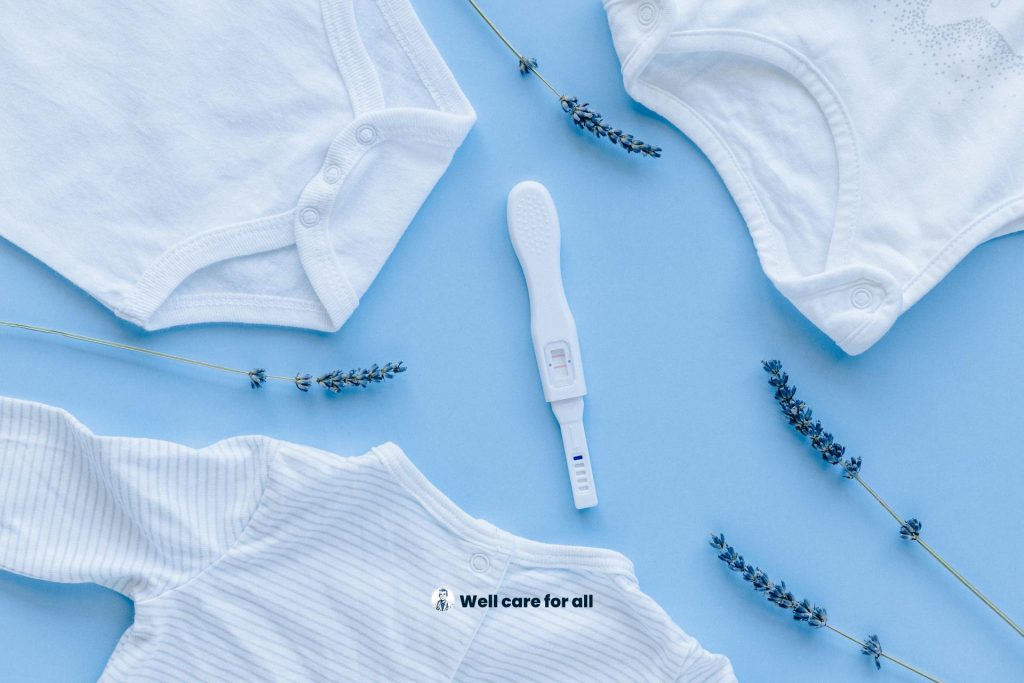
For many women, the dream of starting or expanding a family doesn’t neatly align with society’s often-quoted biological clock. The good news? Fertility after 35 is far from a lost cause. With modern advancements, lifestyle changes, and expert-backed strategies, women over the age of 35 have the opportunity to increase their chances of getting pregnant by natural methods or with medical support. If you’re wondering how to increase fertility after 35, you’re not alone—and you’re not out of options. Let’s dive into practical, science-backed ways to make your dream of parenthood a reality.
Understanding Fertility Over 35
Before we explore strategies, we must grasp why fertility changes with age. A woman is born with all the eggs she’ll ever have—around one to two million. By puberty, that number drops to about 300,000, and with each menstrual cycle, the pool shrinks. By the mid-30s, both the quantity and quality of eggs decrease, leading to reduced fertility rates and a slightly increased risk of miscarriage.
However, while the statistics show a gradual decline, they don’t tell the whole story. Many women over 35 conceive naturally or with minimal assistance.
Key Point: Age impacts fertility, but it doesn’t dictate destiny.
How to Increase Fertility After 35
Making intentional lifestyle shifts can dramatically impact your chances of getting pregnant over 35. Here’s how:
Maintain a Healthy Weight
Research indicates that both being underweight and overweight can affect ovulation. The Body Mass Index (BMI) is essential to reproductive health. To optimize fertility, aim for a BMI between 18.5 and 24.9.
Tip: Focus on healthy, balanced meals rich in lean proteins, vegetables, whole grains, and fruits.
Manage Stress Effectively
High-stress levels can negatively affect ovulation and hormone production. Techniques like yoga, mindfulness meditation, and acupuncture reduce cortisol levels and improve fertility outcomes.
Quick Practice: Dedicate 10 minutes daily to deep-breathing exercises or guided imagery to help manage stress naturally.
Prioritize Quality Sleep
Consistent, restorative sleep regulates hormones like leptin and ghrelin, indirectly influencing fertility. Aim for 7-9 hours of sleep per night, ideally aligning with natural circadian rhythms.
Best Supplements to Support Fertility After 35
Adding the right supplements can give your reproductive health a welcome boost. Here’s what to consider:
Coenzyme Q10 (CoQ10)
CoQ10 is a potent antioxidant associated with improved egg quality in women over 35.
Dosage Tip: Many fertility specialists recommend 200–600 mg daily, but consult your healthcare provider first.
Prenatal Vitamins
Start a high-quality prenatal vitamin with folic acid, DHA, and iron at least three months before trying to conceive.
Vitamin D
A decrease in vitamin D in the body is also associated with reduced fertility and other disorders it causes. If you’re low, ask your doctor for a blood test and supplement accordingly.
Medical Options to Boost Fertility After 35
If natural methods aren’t successful after six months of trying, consulting a fertility specialist can open doors to advanced treatments:
Ovulation Induction
Medications like Clomid or Letrozole stimulate ovulation and can increase your chances of conception.
Intrauterine Insemination (IUI)
IUI involves eliminating and overcoming minor fertility challenges, which are in the form of placing sperm directly into the uterus at a time close to ovulation.
In Vitro Fertilization (IVF)
IVF offers the highest success rates among assisted reproductive technologies, especially when combined with preimplantation genetic testing (PGT) to select the healthiest embryos.
Important: Women over 35 should discuss egg freezing or using donor eggs as part of their family planning strategy if appropriate.
Natural Methods to Boost Fertility After 35
In addition to lifestyle tweaks and supplements, several natural techniques can enhance fertility:
Cycle Tracking
Understanding your fertile window is crucial. Use ovulation predictor kits (OPKs) or fertility-tracking apps to pinpoint your most fertile days.
Anti-Inflammatory Diet
A diet that includes leafy greens, berries, omega-3 fatty acids, and nuts can help reduce systemic inflammation and promote reproductive health.
Herbal Support
Some women use vitex (chasteberry) or Maca root to balance hormones naturally, though you should always consult your healthcare provider first.
FAQs About Increasing Fertility
Q: Is it too late to get pregnant naturally after 35?
A: Not at all! Many women conceive naturally after 35, especially if they’re in good health and proactive about fertility-supporting habits.
Q: How long should I try to conceive naturally before seeing a doctor?
A: Experts recommend trying for six months if you’re over 35 before seeking advice from a fertility specialist.
Q: Does the male partner’s age matter?
A: Male fertility also declines with age, though typically more gradually. Both partners need to adopt a healthy lifestyle to maximize chances.
Q: Are IVF success rates lower after 35?
A: While IVF success rates do decline with age, many women in their late 30s and early 40s achieve successful pregnancies through IVF, particularly with embryo screening.
Q: Can acupuncture help with fertility?
A: Some studies suggest that acupuncture can improve blood flow to reproductive organs, regulate cycles, and reduce stress, all supporting fertility.
Conclusion
Increasing fertility after 35 is possible with lifestyle changes, medical support, and a positive mindset. Whether you opt for natural strategies or assisted reproductive technologies, your dream of parenthood remains within reach.
Remember: Every woman’s journey is unique. Stay informed, stay empowered, and don’t hesitate to reach out to trusted healthcare professionals who can support you every step of the way.
Start today—your future family is waiting for you.




This is an English text.
It’s refreshing to see such a positive and empowering take on fertility after 35. The emphasis on lifestyle changes and modern advancements is encouraging, but I wonder how accessible these options are for everyone. Are there specific resources or programs that make these treatments more affordable? I also appreciate the focus on stress reduction—it’s often overlooked but clearly so important. Do you think societal pressure around the “biological clock” makes it harder for women to approach this journey calmly? Lastly, how do you balance staying informed without feeling overwhelmed by all the information out there? Would love to hear your thoughts!
Thanks so much for your thoughtful comment! I completely agree—accessibility is a big concern, and while some support programs exist, there’s still a long way to go in making fertility care truly inclusive. The pressure around the biological clock definitely adds stress, which is why I highlighted stress reduction as a key part of the journey. As for staying informed, I try to focus on trusted sources and take breaks when it feels overwhelming. Appreciate you being part of this conversation!